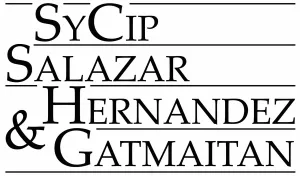The Philippine domain name registrar, DotPh, announced that it has started offering anonymous registrations for the i.ph domain. This is intended to support bloggers and individuals who maintain websites for personal purposes. It is the world's first anonymous domain and can be activated by providing the registrar with an email address and a mobile phone number.
This is unprecedented, and it is uncertain whether it would encourage Internet use in the Philippines without sacrificing IP rights in the Philippines.
Anonymous domain names are different from other domain name registrations in these particulars:
- Representations
- DotPh does not require the registrant to represent that he has legitimate rights in the domain name. He has no such rights if he uses it "or to tarnish the trademark or service mark at issue."
DotPh states that trademark owners may use this provision to stifle legitimate criticism of their marks.
The effect of this provision is better appreciated in light of the PLDT domain name dispute.1 The registrant admitted that he registered the domain name, knowing it belongs to the dominant telephone company, with the intention of "ranting" at its proposed metering system and other policies. The web content is harshly critical of and disparages PLDT's services.
The registrant has shown no legitimate right to the pldt.com except as a means to disparage PLDT's services.
The suit to recover pldt.com does stifle consumer dissent against PLDT's policies. The registrant himself conceded that he can post his criticisms in a website using another domain name. The US U.S. 4th Circuit Court Of Appeals reached this conclusion in one case1 where it prohibited Doughney from using the PETA acronym as his domain name, without enjoining him from posting his criticisms of PETA’s advocacy under another domain name.
Under the DotPh rules for anonymous domains, no adverse presumption arises against bloggers in a similar situation.
- Removal of the identifiability requirement.
DotPh dispenses with ICANN's requirement that the registrant warrant that "to (his) knowledge, the registration of the domain name will not infringe upon or otherwise violate the rights of any third party" and that he "will not knowingly use the domain name in violation of any applicable laws or regulations."
DotPh states that the registrant of a domain name cannot know "the rights of any third party" under the laws of all countries. DotPh limits those representations to the laws of the country where the name conducts business.
The representation is made because the Internet is an international medium of communication. The registrant only warrants that "to his knowledge" his registration of a domain name does not violate the rights of others. He is not made liable for lack of knowledge but only for knowing violation of pertinent laws after he has been notified of third-party rights under them.
Since the registrant of an i.ph domain is permitted to remain anonymous, DotPh Inc. dispensed with all of the identifiability requirements applicable to other registrants.
The i.ph registrant only needs an email address, which may be a fictitious name, and a cell phone number, which may be a pre-paid account whose owner is unidentifiable.
Adverse Effect on Trademark Owners
Anonymous domains encourage bloggers to expound their ideas without revealing their identity. But making the registrant unidentifiable defeats IP rights protection.
Anonymous domain names encourage hijackers and bloggers to publish derogatory materials against energy, utility and similar companies, which are usual targets of consumer protests. Trademark owners would find it difficult to identify the unauthorized users in a court action. They would not even enjoy any presumption against the registrants who may disparage their services and tarnish their reputation using their own trademarks as anonymous domains.
They may also encourage other countries to adopt their peculiar rules and defeat the purpose of the UDRP: predictability of dispute resolution on the basis of rules that apply to all parties regardless of the country of registration.
Trademark owners can pre-empt cyber-gripers only by the defensive registration of their trademarks as i.ph domain names.
Footnotes
1. Philippine Long Distance Telephone Co. vs. Gerardo Kaimo, et. al, Civil Case No. 99-38800, National Capital Region, Quezon City, Branch 90.
2. People For The Ethical Treatment Of Animals vs. Michael T. Doughney, August 23, 2001,
The content of this article is intended to provide a general guide to the subject matter. Specialist advice should be sought about your specific circumstances.


